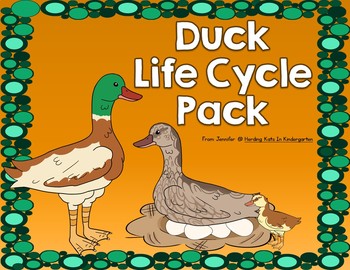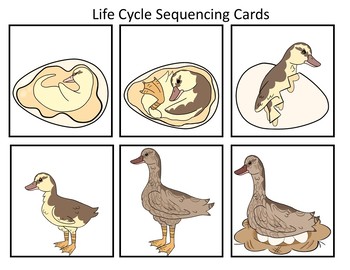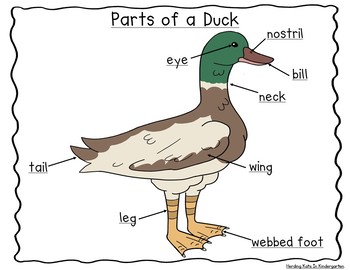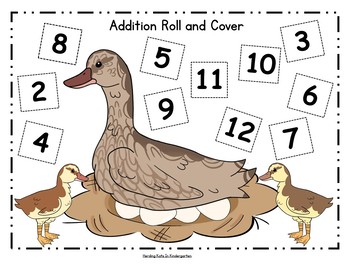Duck Life Cycle Pack with Observation Journal
- PDF
What educators are saying
Description
Learn all about the life cycle of ducks with this Duck Life Cycle pack that you can use year after year in conjunction with hatching eggs and raising ducklings in your classroom! The Observation Journal, labeling pages, emergent reader, writing pages and other activities will make hatching ducks in your classroom more meaningful. These cross-curricular activities will help you cover your Science Standards while still meeting Math and Language Arts Standards! Perfect for a Spring Life Cycles Unit!
Included:
Duck Life Cycle Sequencing Cards: Use the cards on this page to have your students sequence the life cycle of a duck. You can have them arrange the cards in a pocket chart or place a small piece of Velcro on the back for use on a felt board.
Life Cycle Sequencing Sheets: Have students color, cut out and paste the cards on page 4 in the correct order on page 5. Alternatively, have students color and label page 6.
Needs of a Duck sheets: Students can color, cut and paste the 5 needs of a duck, or color & label them.
Label the Duck: A labeling and coloring activity for your students. The first page is a full color version already labeled that you can display in your classroom. The 2nd page is a b&w version for your students to color and complete.
Duck Life Cycle Easy Reader: Have students color and assemble the 9 pages into a book that they can read and reread! This is printed so that you can get 2 pages per piece of paper.
Duck Life Cycle KWL & Can/Have/Are Charts: A color and b&w version of KWL charts as well as a Can/Have/Are chart. Have students complete these before, during and after your life cycle unit. I always display my color version in the classroom and have the students complete their b&w versions in their life cycle journal.
Egg Hatching Calendar: Use this calendar if you are hatching eggs in your classroom. Just have students start with day 1 and record until day 28 when the eggs hatch! This calendar is blank so you can have students add the month and dates appropriate to your unit of study.
Duck Life Cycle Writing Page: Use this page for students to write and draw about the Duck Life Cycle. This can be used as a non-fiction narrative of the life cycle, or for students to create a fictional story of a duckling hatching.
Egg Hatching Observation Journal: Use these 13 pages for students to record their observations if you hatch eggs in your classroom. You can use them in any order and use as many or as few as you decide. Students fill in the day of the cycle, and then answer the questions and/or illustrate.
Duck Roll & Graph Activity: Students roll the cube and record each roll on their graph. When one image reaches the top of the graph they stop and fill out the More, Less or Equal sheet or the Addition sheet.
Roll & Cover Addition and Subtraction Sheets: This is a fun game for math centers. Provide students with 2 dice, some two-sided tokens and a game mat. Students take turns rolling the dice and either adding or subtracting depending on the game mat. If the sum or difference is uncovered they can place their token on top. Play continues until all of the numbers are covered. The students with the most tokens on the board is the winner.
Color by Sum: This is a fun color-by-sum sheet for your students to color according to the code. The first page is sums to 10 and the second is sums to 20 so you can differentiate for your students.
Number Sense and Addition: There are 3 cut and paste duckling addition pages and a cut and paste 10 frames page!
Duck Life Cycle worksheets: Two worksheets for your students to practice matching the terms for the duck life cycle to the correct pictures.
Crowns: a Duck Life Cycle crown and a Needs of a Duck crown that students color, cut and paste to create their crowns and display their knowledge.
Check out my other Life Cycle Units too!
★ Chicken Life Cycle Pack, Including Journals, Labeling Pages and More!
★ Butterfly Life Cycle Pack Including Observation Journal
★ Frog Life Cycle Pack Including Observation Journal, Labeling Pages and More
★ Plant Life Cycle Pack, Including Observation Journal, Labeling Pages and More!
★ Praying Mantis Life Cycle Pack with Observation Journal, Labeling Pages & More





